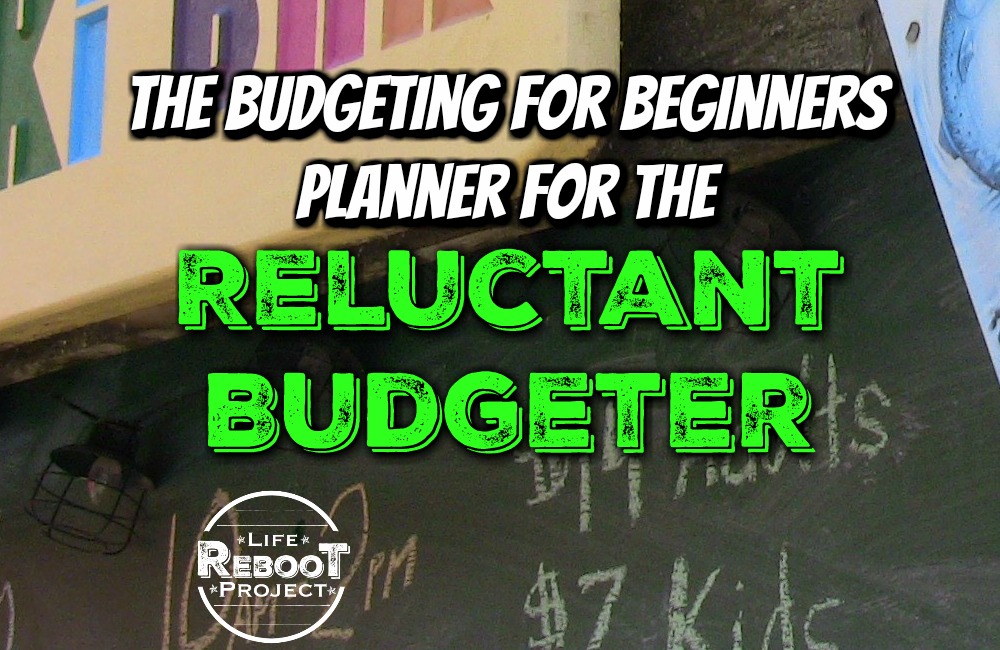
For people not used to budgeting and spending the paycheck without a plan, budgeting can seem like medieval torture. I know when I first put myself on a budget, I was shocked at how hard it was to stop spending on things I never gave regular thought to before. Budgeting was a financial lifesaver for me once I got over the pain of actually doing it. Here is my story.
In the early nineties, I got into a little debt, it wasn’t monstrous, but it was significant for me because I am usually a very nervous person about spending more than I ever made. I think my problem was that I had got a good job and was making more than I had ever made before, I got my first credit card, and I had moved away from home and wanted all the cool luxuries I enjoyed while living at home. As I said, I’m kind of a nervous person when it comes to money, so it didn’t get too far before I finally put the brakes on creating a budget to pull myself out.
I started simply by figuring out where my money went every month; then I figured out where I needed it to go. And, I pushed myself hard to stick to it. That is really what a budget is, right? It’s essentially a map of what to do with your money every month. It took me a while to figure it all out. But, in the beginning, I knew I would never stick to it if was too difficult to follow, so I came up with a very loose plan to get me on track, yet something loose enough so I wouldn’t feel strangled. So, that same type of organizational method is what I’m going to give you below. Something to get you started without choking you to death.
Some people may fall in love with budgeting and take it to a whole new level. Others, I hope, at least stick with some plan to keep them on some sense of the right track to get their finances in order.
Budgeting for Beginners; Take an assessment of your finances
The first thing you need to do is take a reasonable assessment of your finances. You’ll need to write down everything you have coming in and going out every month. Some people recommend taking a notebook around everywhere you go and writing down every time you spend money. I did this for a while, but it got too tedious, and I knew I wasn’t going to stick with it if I did this any longer. I did it enough to identify some places where I spent ‘just a couple of dollars’ here and there which added up to something substantial.
I do agree with most financial experts that you need to take at least 10% right off the top and put it aside. This will be your emergency nest egg fund. I put more; way more. But, 10% should be your absolute minimum. The next thing you need to do is to take care of any bills that are your necessary monthly expenditures. These are things like housing, utilities, food, and gas for your car. This is where it will start to get difficult. If you have a massive debt to pay off, what could you do without the monthly Netflix or Cable TV subscription? Do you go to the gym enough to make that worthwhile? These seemingly small monthly subscriptions could add up to a big chunk of money.
Could you live without these for a time until you get your debt paid off? Even if you eliminated them for a short six months or a year, you might find you don’t miss them over time. What you may have thought was a necessity, you actually found a replacement for, and you are happier now than you were before. Now, you get to the portion I call ‘debt pay down’. You need to start making more than the minimum payments on the debt. Minimum payments are designed to keep you in debt.
Concentrate on paying off your highest finance charges first. If you want to dig into it, I would figure out how many dollars are going out the door in interest and pay that first. 10% on $500 is less than 15% on $5,000. Figure the dollar amount going out the door every month instead of just the percentage.
Make payments on the principal of your house, over and above your monthly house payment. This leads us to the next part. You need to figure out how rough or how fine you want to figure out your budget.
Budgeting for Beginners; Figuring out how rough or how fine you want to budget
If you are used to having a little cash in your pocket, this is where you need to determine how much. The more willpower you have, the tighter your budget can be. The less unspoken for cash you can have in your pocket. If your pain of debt and want to get out of the nine to five is enough to tighten your belt, good for you. The point of this article is to make it simple so you’ll want to follow the budget and keep going with it until things start to turn around.
Most people I hear about start kind of loose with a little extra money in their pocket, but tighten it up as they start to see real success. The tighter your budget is, the more categories you will have and the more money you will be putting toward your nest egg build-up and paying off debt. Just remember the old saying, No pain no gain. If you can stomach a tight budget now, you will have more money to spend in the future and the less trapped you will feel at your job.
Budgeting for Beginners; Setting up your tracking system
Now, this will depend on your level of tech style. I prefer the old cash-in envelope method. This worked for me before we had cell phones and mobile computers and I still feel this is the best method. Start by eliminating spending on credit cards and debit cards. There are some pretty good ways to use your credit cards to make some money, but that’s not what this article is focused on. We here a primarily focused on paying down and initializing your nest egg, so get rid of the credit cards for the time being.
Get a stack of envelopes and write your categories on the front. Take the cash divvied up for each category from your paycheck and put it into the correct envelope. When that envelope is empty, you are done for that particular pay period or that particular month. I used to carry a small piece of paper around with me in my wallet where I would keep a tabulation in each category. You could do this on your phone now. There are a ton of good budgeting apps out there now.
I didn’t have a smartphone back then, so a piece of paper worked pretty well. If I was out shopping and I saw something I wanted, I just pulled out the piece of paper and it told me how much I had in that envelope at home. I never bought it on the spot unless I knew for a fact that the money was there for it.
Budgeting for Beginners; Making adjustments as you go along
You will probably need to make adjustments to your budget as you go. Hopefully, you lean toward a larger debt payoff and more nest egg creation. Much of the time I see the grocery category see the most fluctuation. If you plan your budget at a time when all your cleaning supplies and laundry supplies are pretty stocked up, you may go over budget when it comes time to replenish these items. These types of things are some of the most expensive at a grocery store and can have a huge impact on a budget.
The idea here is to make your budget flexible. Your budget will help you if you work it and keep working on it. For a budget to be effective, it needs to be something you will want to follow. It will do you no good to create a really strict budget just to not have it be something you don’t want to follow. The best advice I can give is to have fun with it. The more results start to show, the more fun it will be. My budget wasn’t as much fun when I was paying down debt and had a $300 nest egg in the bank. Now that my nest egg is close to $100,000 and I have no debt, it feels pretty good. My budget is fun to play around with. I budget things now that I’ve always wanted. Stuff like cool cameras, gadgets, or new computers. I still use my budget to set aside money for them all.
Be safe,
Kevin

